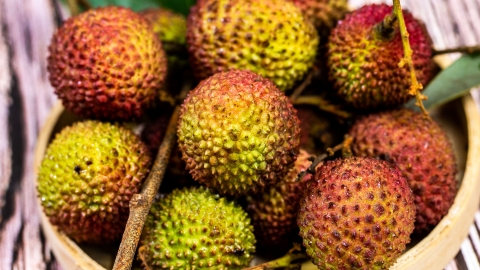Can patients with herpes eat lychee?
Whether patients with herpes can eat lychee mainly depends on the specific condition of the patient. If the condition is mild, lychee can generally be consumed. However, if the condition is severe, consumption is not recommended. Detailed analysis is as follows:

Herpes is a viral skin disease caused by the herpes virus. Common types include simplex herpes, chickenpox, and shingles. It mainly manifests as blisters or pustules appearing on the skin surface, accompanied by symptoms such as fever and pain. Lychee contains abundant nutrients, including protein, folic acid, and glucose. If a herpes patient's condition is mild, moderate consumption of lychee can help supplement essential nutrients, enhance immunity, and aid in recovery.
However, if herpes patients have severe symptoms such as high fever and general malaise, or if they have a sensitive constitution or a history of allergies—especially to lychee—they should avoid consuming lychee. Additionally, lychee is a heaty fruit, and excessive consumption may cause internal heat accumulation ("heatiness"), potentially worsening herpes symptoms or triggering other adverse effects. In such cases, it should be avoided.
In daily diet, attention should be paid to food diversity and balance, avoiding excessive intake of any single food item, in order to maintain overall health.








